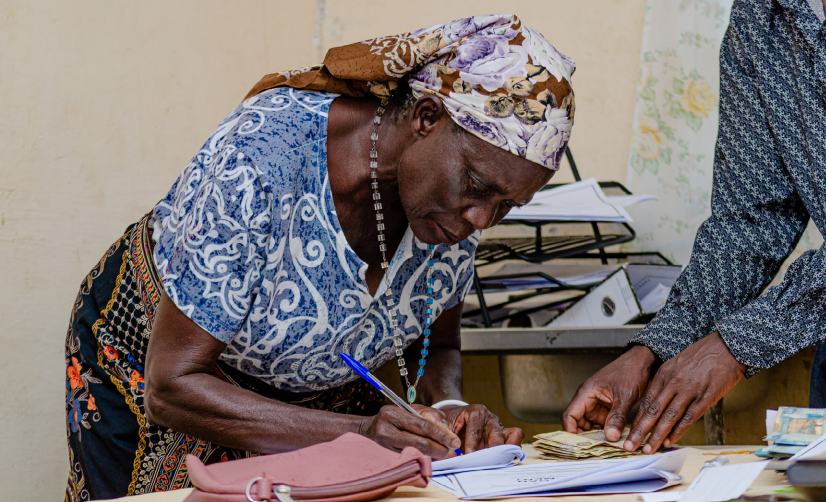What’s stopping older people from working?
The research identified seven key barriers:
- Attitudinal barriers – Negative attitudes towards older people, especially those with disabilities, limit their opportunities. A community member shared, “The leaders in the community do not see disabled people as being able to participate in economic activities.”
- Infrastructure challenges – Lack of accessible trading spaces and public facilities makes it harder for older people to work.
- Financial barriers – Many older people lack access to capital or loans, which limits their ability to start or expand businesses.
- Institutional barriers – Policies and systems often fail to include older people in economic programmes.
- Educational barriers – Limited access to training opportunities reduces older people’s chances of learning new skills.
- Technological barriers – Older people often face difficulties using technology, which is increasingly necessary for work.
- Social protection gaps – Insufficient support systems, like pensions, leave many older people at-risk.
How can these barriers be overcome?
To help older people thrive in the workforce, the following steps are recommended:
- Create a national policy framework – The government should develop policies specifically focused on including older men, women, and people with disabilities in the workforce.
- Introduce a universal pension that gives older people a steady income to support their economic activities.
- Establish a financial support fund to provide start-up capital for older people’s businesses, helping them become self-reliant.
- Support farmers with tools and inputs to improve their productivity.
- Build accessible trading spaces – Local governments, CSOs, and development partners can set up trading spaces designed to meet the needs of older people, including rest areas and access to water and sanitation.
- Create specialised job roles that leverage older people’s expertise, such as counselling, conflict resolution, and community leadership.
- Encourage the creation of private organisations that include both older and younger workers.
Addressing these barriers will require collaboration between the government, employers, and civil society. By creating opportunities for older people to work and contribute to their communities, Zambia can ensure dignity, inclusion, and a better quality of life for all.
Explore more about our work improving income security for older people around the world.

